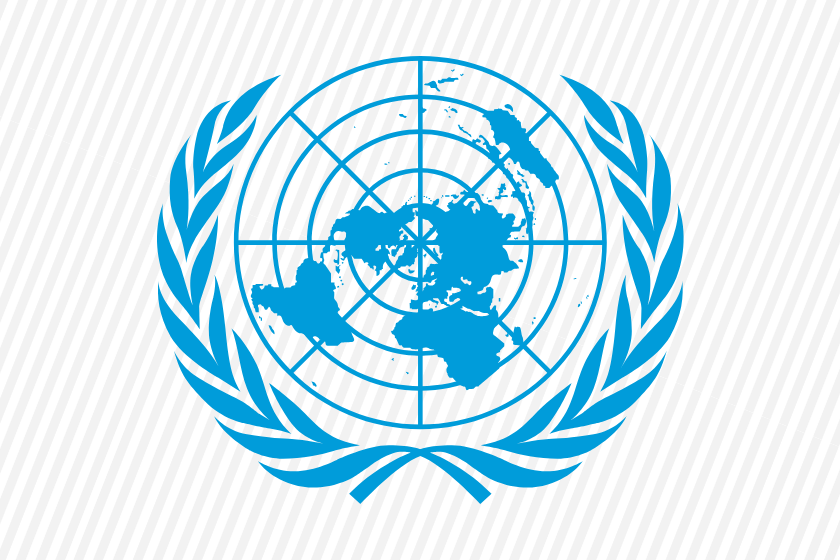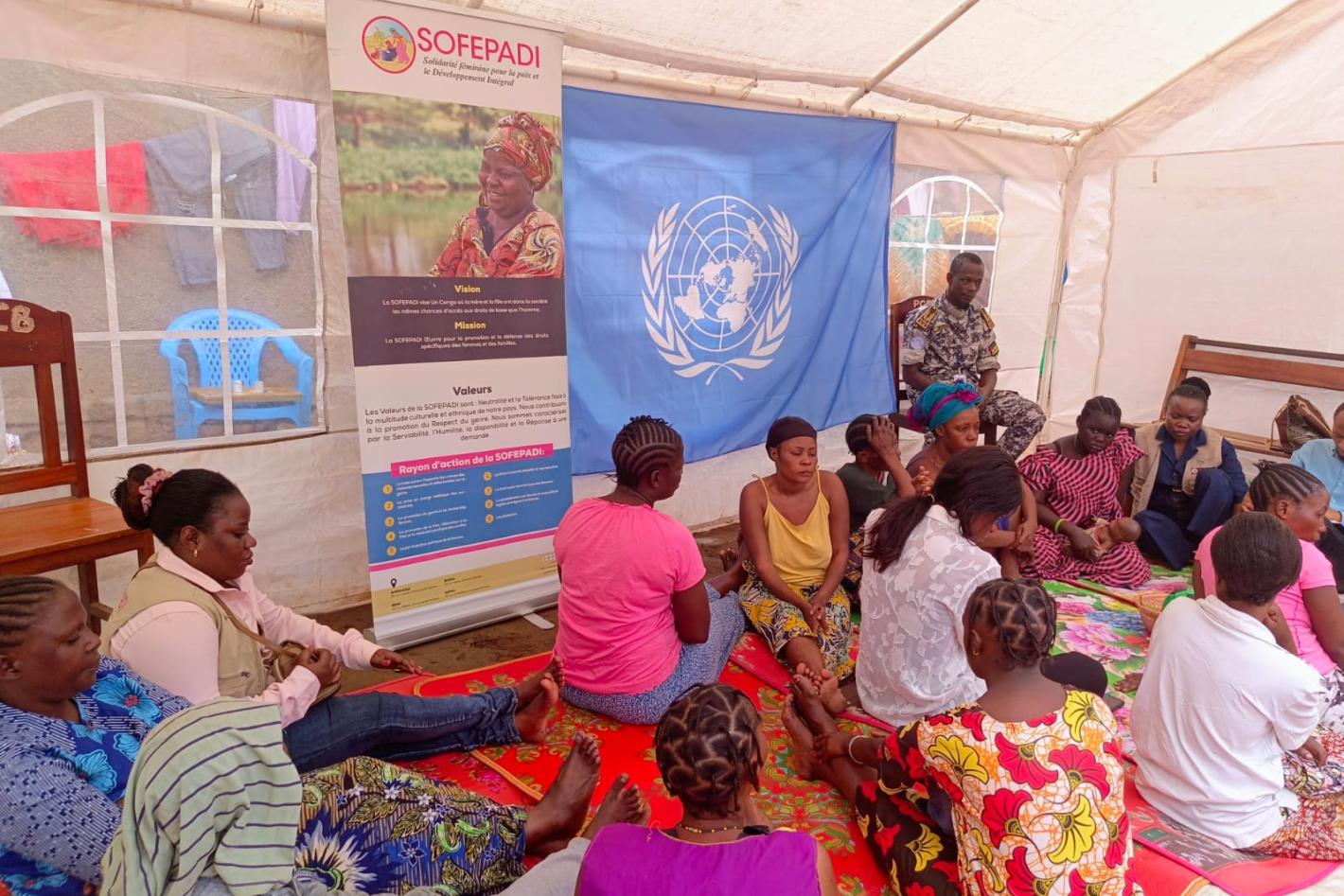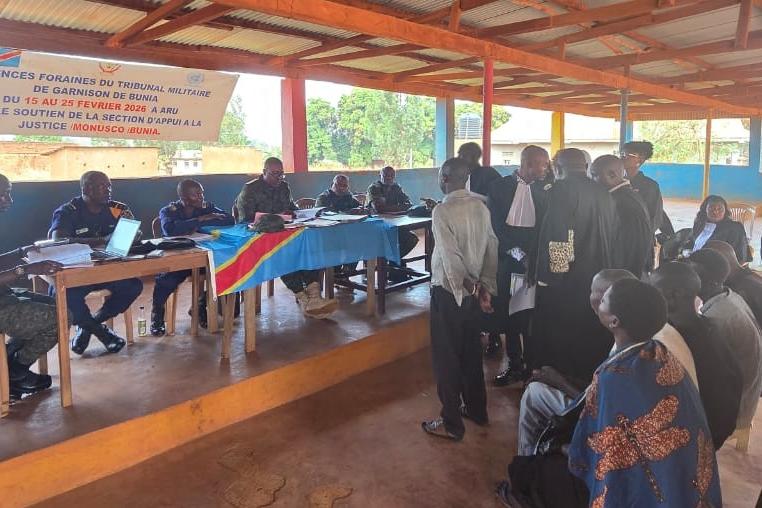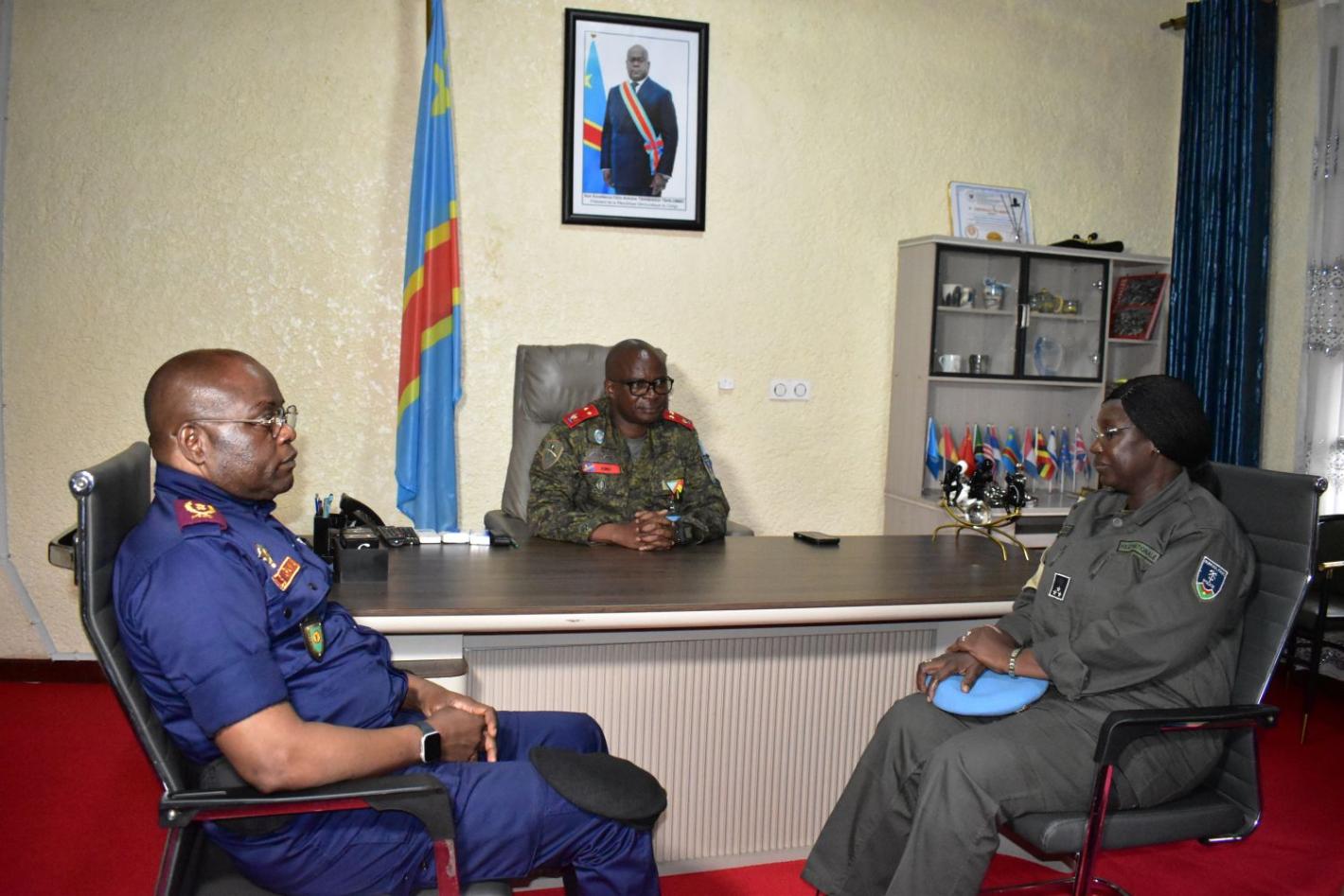As part of the fight against cyber-harassment against politically active women, MONUSCO Gender section in collaboration with the feminist movement “Bisobasi Telema” (Women, Let Us Rise) organized from August 14 to 15 in Kinshasa a training on digital security as a means of control and prevention. Fifty women leaders from political parties, civil society organizations and human rights organizations took part.
For two days, they were equipped and learned prevention mechanisms such as account certification, how to block and report incendiary comments and publications. Cyber-harassment is defined as an aggressive, intentional act perpetrated by means of the Internet to violate the intimacy and privacy of a third party based on false or defamatory statements.
Elsie Lotendo, coordinator of the BISOBASI TELEMA movement, shared with us her experience in the field, revealing that several public women are victims of harassment on social networks.
A practice she strongly deplored, confirming that social networks are used today to destabilize women who aspire to the management of public affairs. “Online cyber-sexist harassment and hate speech against women who aspire to political life is spreading. Especially in this electoral period, they are the object of slander, and tribal conflicts based on publications which express their opinions”, regretted Ms. Lotendo. And to conclude: “It is time to fight against these despicable practices”.
Consequences
Cyber-harassment thus has serious consequences on the lives of women politicians. The participants expressed their dismay at this bad practice and are convinced that it is done intentionally to undermine their image.

Francine Nzumba Nzinga has decided to stand as a candidate in the next elections, particularly for the parliament. She pointed out “cyberbullying is done against us to discredit us. This is one of the causes that prevent women from participating in the political life of the country”.
The participants in this meeting were unanimous on one point: during the election period, women are victims of insults and intimidation from their political opponents, often hidden behind false profiles on the networks.
"These maneuvers are made to prevent women from getting involved and positioning themselves in the Congolese political space, because they are considered to be part of men," insisted Ms. Makekita. She is convinced that the harassment of women on digital platforms reinforces the climate of insecurity and discomfort within Congolese society.
MONUSCO supported this training to help them cope with this situation which impacts their political participation. The Mission equipped them with digital security as a means of preventing and combating hate speech distilled through social networks. Trained, they are now able to secure their accounts and impose, through the same channel, a climate of peace.
The leadership of the BISOBASI TELEMA movement has encouraged women to denounce the hate speech, harassment, and sexist stigmatization of which they are victims.
It should be noted that DRC promulgated on March 13, 2023 a law relating to the Digital Code. This law aims to prevent and prosecute online crimes, but also to protect personal data. In other words, it makes it possible to prosecute those responsible for harassment, fake news and hate speech distilled on social networks.







